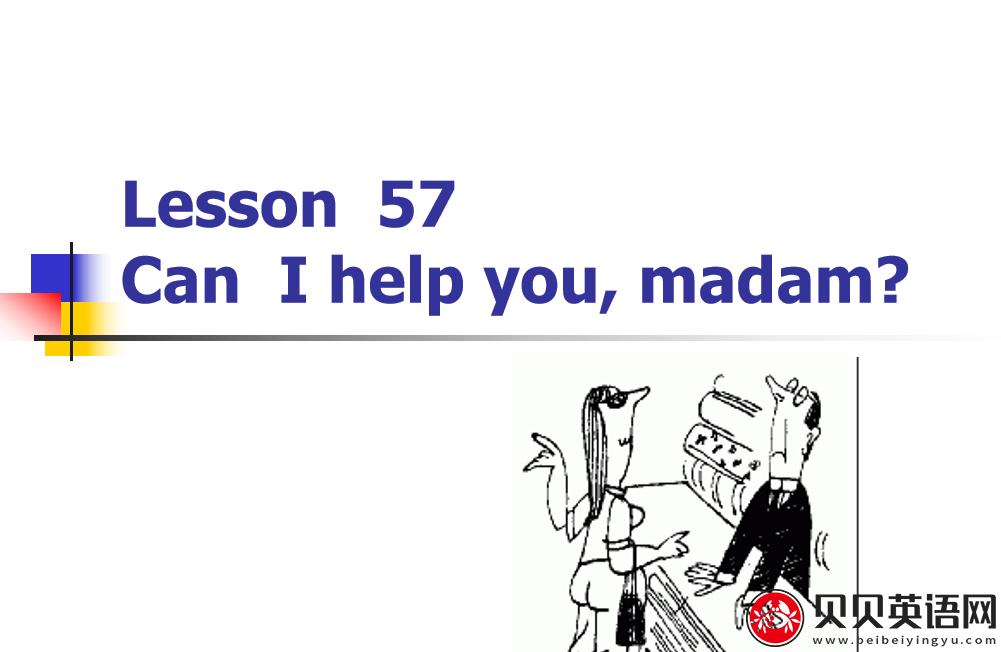欢迎访问贝贝英语网!

She returned to the shop the following morning dressed in a fur coat, with a handbag in one hand and a long umbrella in the other.
with sth. in hand 手上拿着
He went to the theatre with a book in one hand. 他手上拿着一本书去了电影院
She went to her mother’s carrying her baby with a chicken in one hand and a duck in the other.
Not realizing who she was, the assistant was eager to serve her this time.
现在分词短语代替一个分句位于句首时,其否定形式是在它前面加上not,without 或never 等否定词。
这些词有时可互换,有时则不可:
Not/Without/Never hesitating for a moment, he ran after the thief.
Not being able to open the door, I asked my neighbor for help.
tell sb. not to do sth. 告诉某人不要做某事
像 eager,glad,pleased,sorry等描述感觉的形容词作表语时后面往往跟不定式:
They are all eager to come.
I’m pleased to work with you.
Not being able to open the door, I asked my neighbor for help.
tell sb. not to do sth. 告诉某人不要做某事
像 eager,glad,pleased,sorry等描述感觉的形容词作表语时后面往往跟不定式:
They are all eager to come.
I’m pleased to work with you.